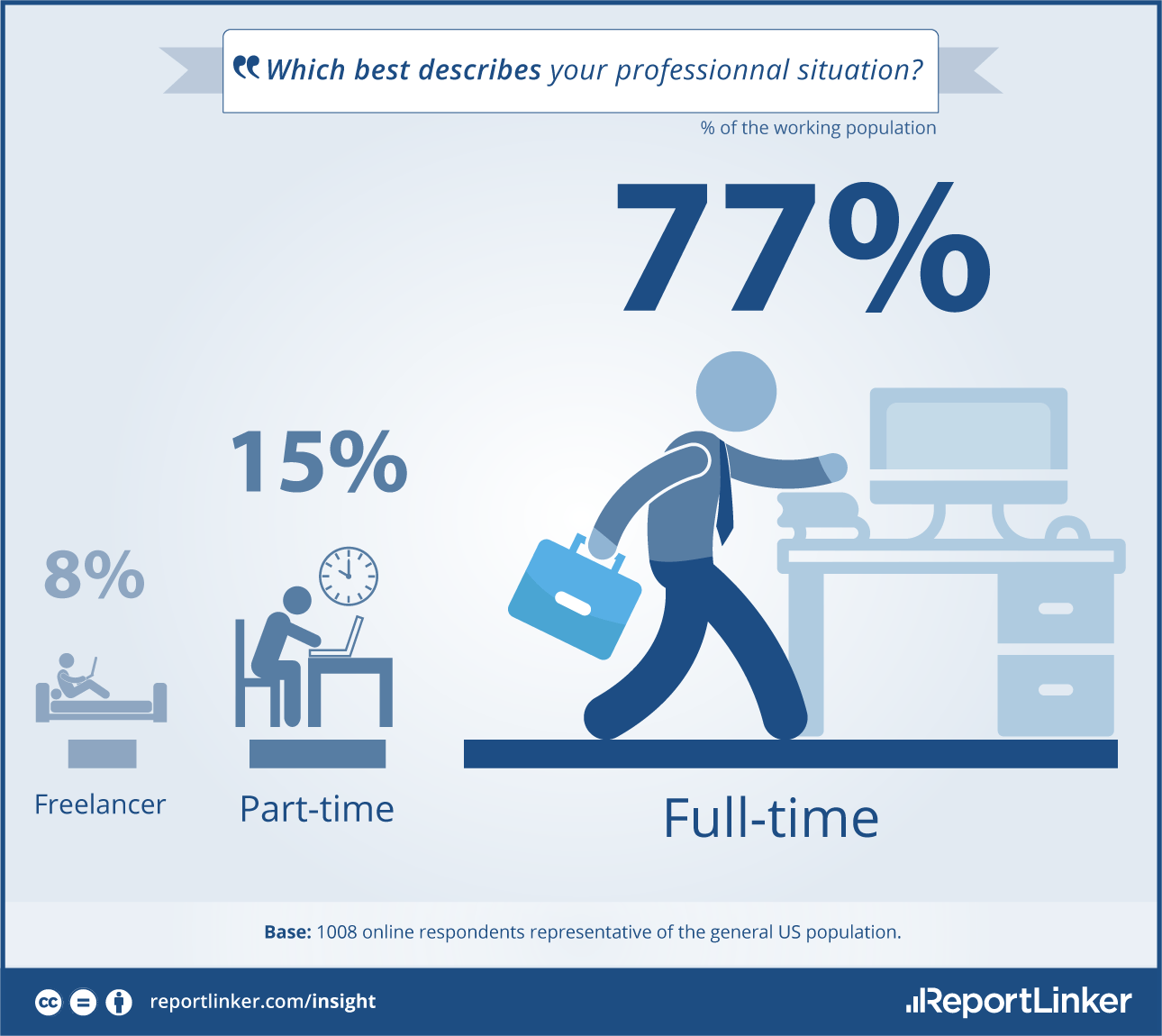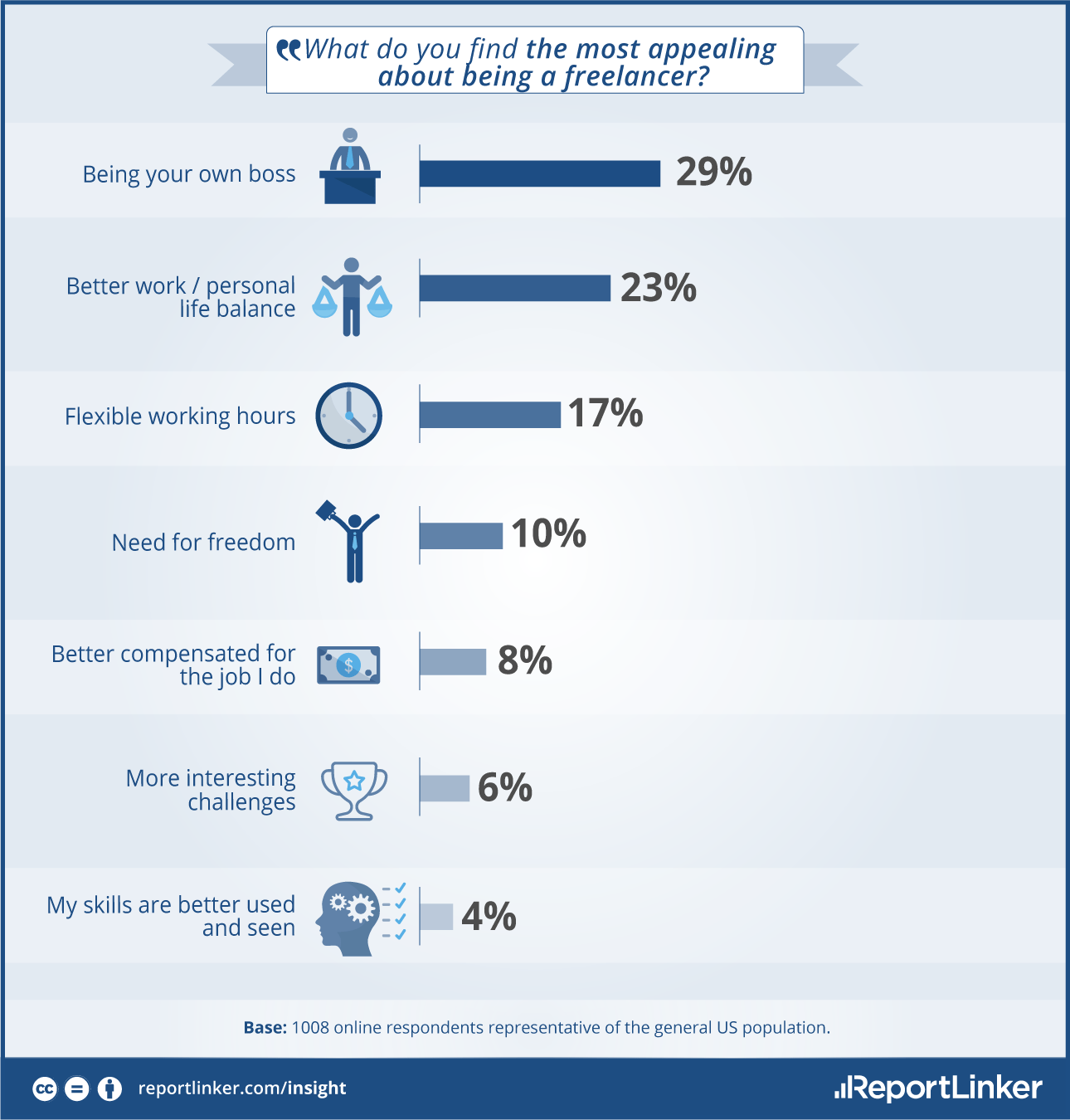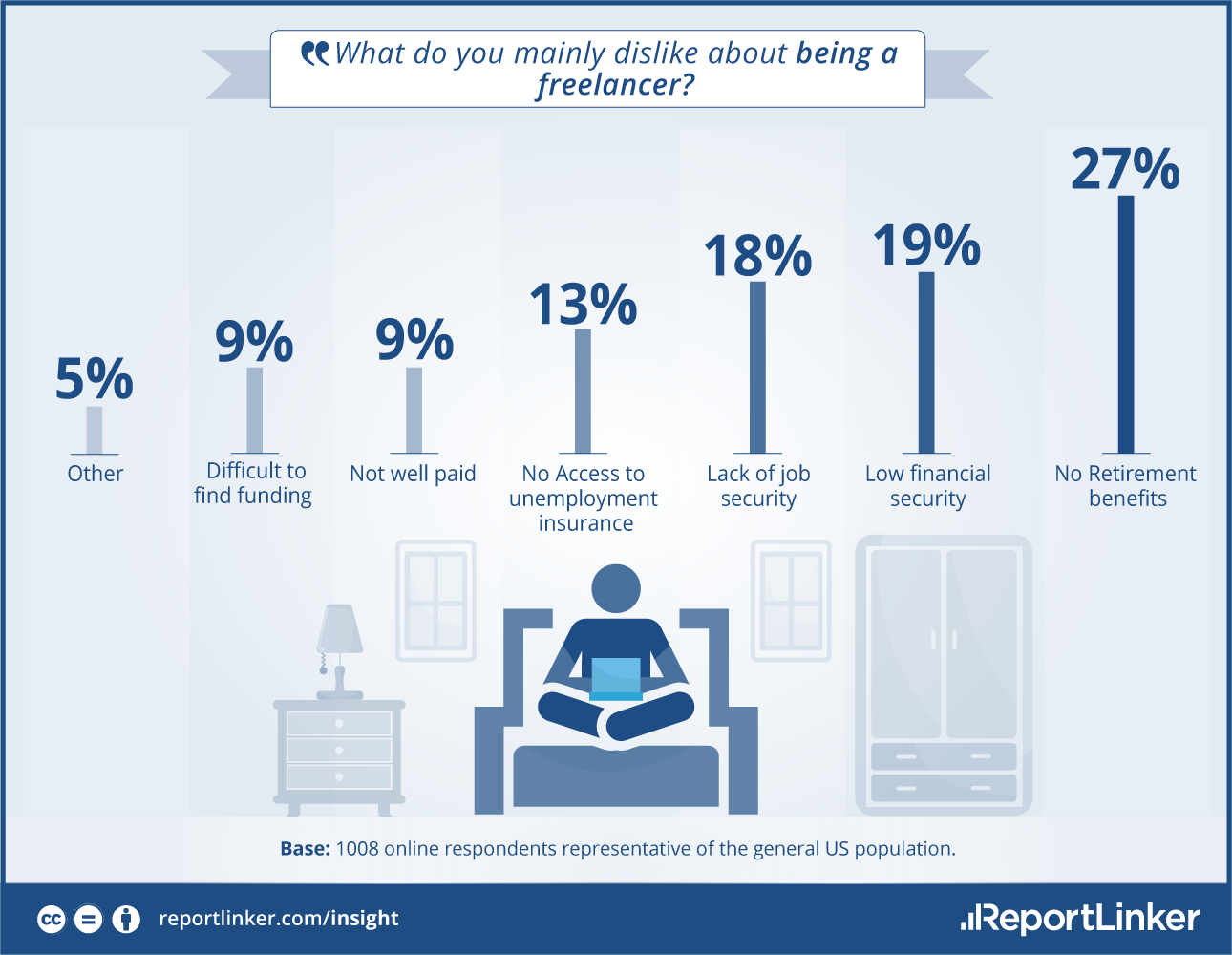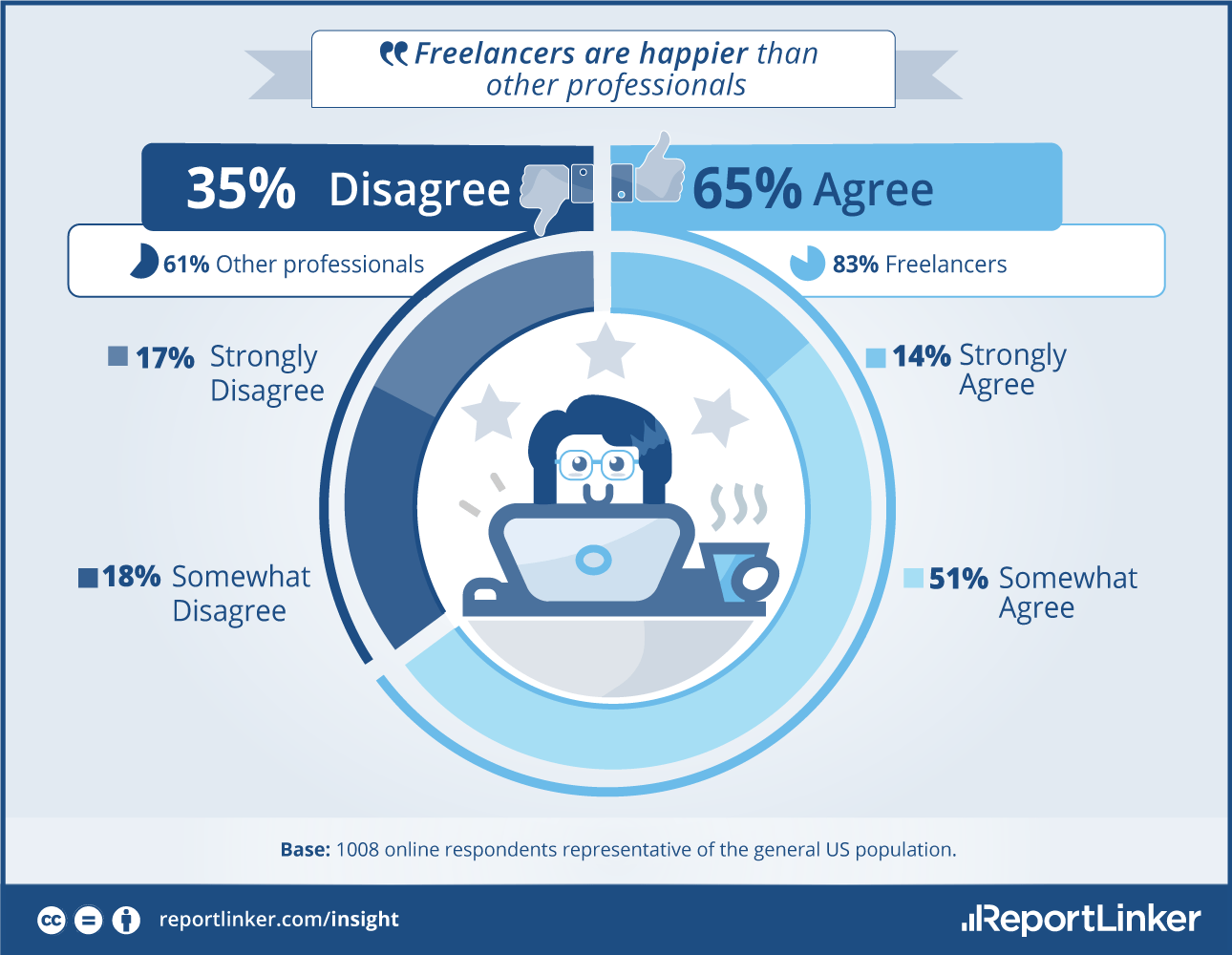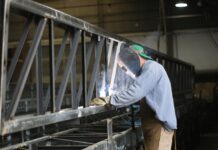Given the choice, would you prefer freedom or security when it comes to your career? Would you like to have a guaranteed paycheck, for a guaranteed amount, health insurance, and a pension with the deal being that you have to show up on time to work in an office when someone else tells you and accept having strictly limited personal or family time except on weekends? Or, instead, would you exchange that situation for a life of personal freedom and the possibility of making much bigger money, with the tradeoff being that you won’t have any financial guarantees?
Research conducted recently by ReportLinker involving 1,008 US online respondents found that while 77% of American working adults have a full-time job as an employee for a company or organization, more than one-fourth (26%) said that they would consider leaving their secure job to become a freelancer or a contracted worker in the “gig economy”. At the same time, 59% said that their trying to do the latter is “very unlikely” to happen.
But, what about those who have fled from the safety of the Monday through Friday race to the office, and walked out into the air to do their own thing? What do they have to say about what they love about it? The leading answer was “being my own boss” (29%). Another 23% said that they felt they could tend to their non-working lives better this way, while 17% said that they loved the freedom to be able to set their own hours.
On the other hand, what about any downside to all this freedom and self-fulfillment? Nearly 20% of freelancers said that not having job security can be stressful, and another 18% cited no guaranteed income as stressful or scary. But most of all, more than one-fourth said that the worst aspect of freelancing is not having any guaranteed pension, which might mean working well into old age.
Alright, when all is said and done, perhaps the one question that matters most is: who is happier, the employee or the freelancer? Here is where we find the most telling evidence: nearly two-thirds (65%) of respondents (including 83% of those who are freelancers) said that it’s the freelancers who are the happier, while just 35% (including 61% of non-freelancers) said that it’s the full-time employee.
If freelancing or being a contracted worker in the gig economy is so risky and may mean you have to work much later into life, what is so attractive about it, and why are the “giggers” overwhelmingly seen as being happier? According to research, people who possess deep expertise in something or a highly advanced skill set can command big money for gigs. And by learning how to treat their gig-finding and compensation-setting as a business just like that of any business owner, they can learn how to find steady work.
Once the ability to steadily bring in a flow of big-paying gigs gets ingrained, all of the other benefits take care of themselves: the short, easy commute (if you choose to work from home); the beautiful view (you can work from anywhere); doing more interesting, creative work; the greater sense of purpose and personal fulfillment; and, yes, going on vacation nearly anytime you desire.
Oh, and one last thing about being in the gig economy: nobody can fire you. Except yourself. How’s that for security and happiness?
Hundreds of Business Opportunities – Visit the Home Business EXPO
Find a Home-Based Business to Start-Up >>> Hundreds of Business Listings.












































